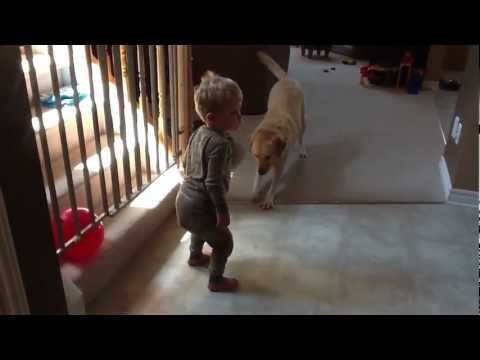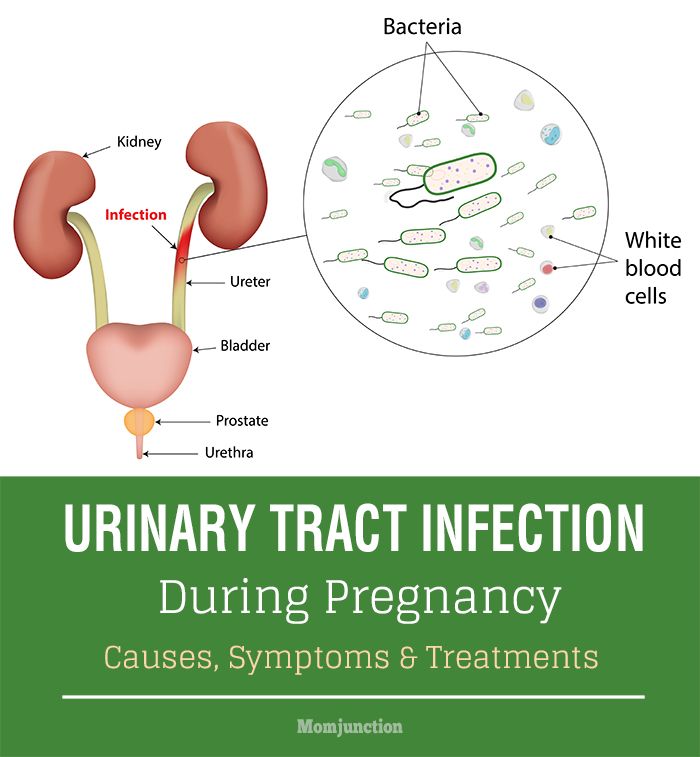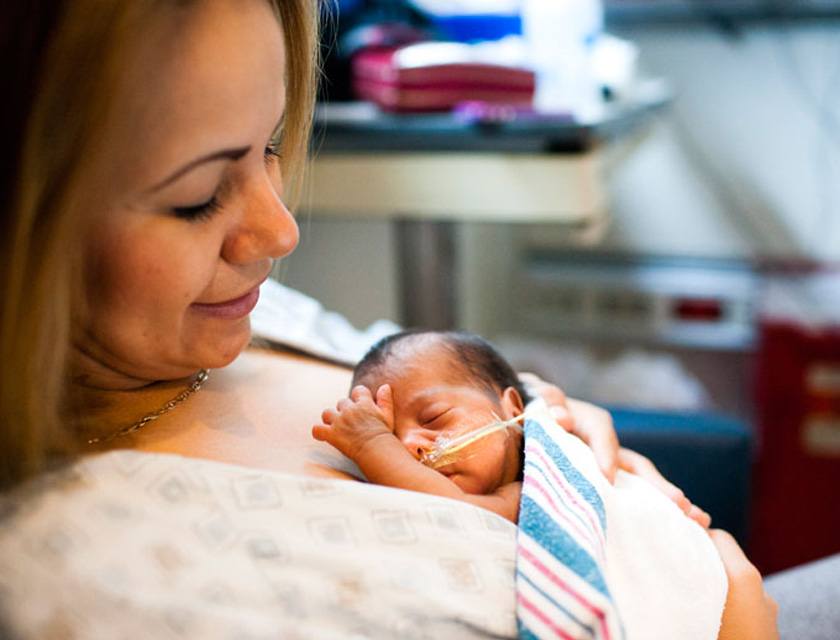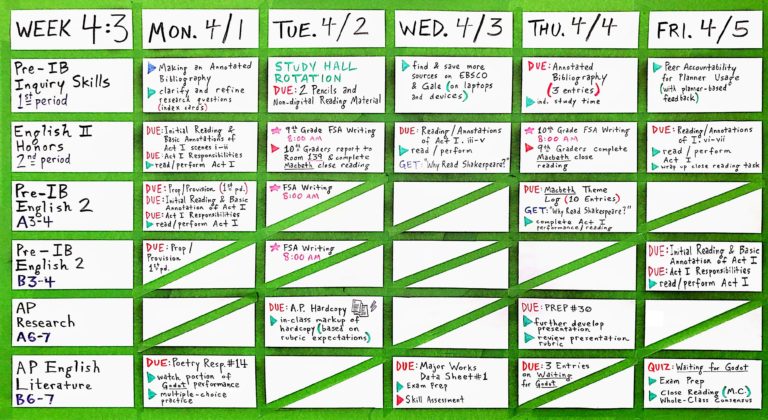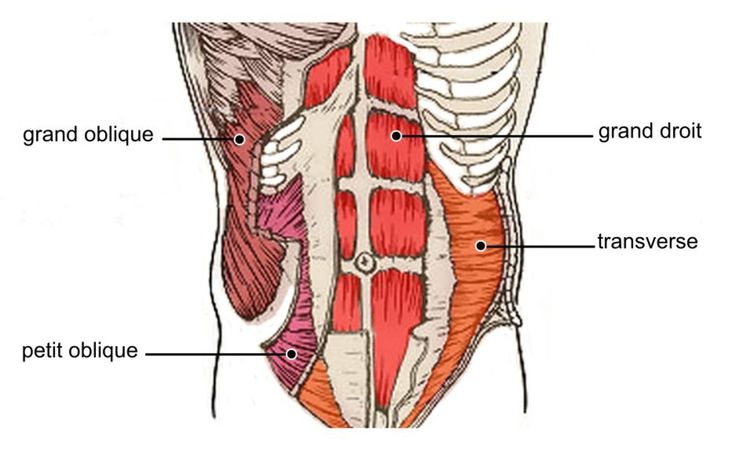Baby gassy but no poop
Your Baby's Not Pooping but Passing Gas? What You Should Know
Congratulations! You have a new little person in the house!
If you’re a newbie parent you might be feeling like you’re changing your baby’s diaper every hour. If you have other little ones, you already know that a diaper can tell a lot about a baby’s well-being, but that babies — like adults — can sometimes have common plumbing issues.
If your baby is not pooping but passing gas, don’t worry. Your baby is still getting the hang of this thing called digestion. This is a normal part of being a baby.
There are several reasons why your baby might not be pooping. This can be uncomfortable for them (and you) but in most cases it’s not a reason to worry. Here’s what to know and what to do about your baby’s gassiness and lack of poop.
In contrast to the early newborn days when it seems every diaper change is a poop, your baby will naturally poop less as they get to be a few weeks to several months old.
There is a range of healthy when it comes to how often a baby should poop. As long as your baby is feeding normally and gaining weight (1 to 2 pounds a month), don’t worry about the number of poops.
Some babies 2 months or older poop once a day or more often. Other babies poop once every few days or even once a week. Even if your baby is pooping less frequently, their poop should be soft and easy to pass when they do go.
Breastfeeding, formula, and solids
Pooping frequency depends in part on what your baby is eating.
If your baby is only being breastfed or chestfed they may not poop every day. This is because their body can use up almost all the components of breast milk for nutrition and there is very little left that needs to be eliminated. After the first 3 to 6 weeks or so, they can go even a whole week without a poop.
If your baby is formula-fed they should poop at least once every couple of days. But some babies poop every day, while some poop more often, up to several times a day. This is all within the typical range.
This is all within the typical range.
Because the look of your baby’s poop can vary, it can sometimes be hard to tell when a baby has diarrhea. Signs that there could be a problem include pooping more than once per feeding, or poop that is getting more watery over time. If you notice any of these signs, talk with your baby’s pediatrician or doctor.
Once your baby starts eating solid food, it’s a whole new game! You’ll soon learn which foods might give your baby gassiness without pooping and which their digestive system seems to poop out almost too quickly.
Color and texture
Pooping the rainbow is pretty normal for a baby. Different textures and smells are also completely normal.
In fact, your baby’s poop may move between several shades of brown, yellow, and green, depending in part on what they’re eating.
Chalky, red, or black poop might mean that there is a health issue. If you notice these changes, talk with your baby’s pediatrician immediately. You should tell your doctor or pediatrician if you notice blood in the poop, or if your baby looks sick.
You should tell your doctor or pediatrician if you notice blood in the poop, or if your baby looks sick.
Straining to poop
Don’t worry if your baby appears to be straining to poop. Straining while pooping is typical for young babies. This is because they are still learning how coordinate the muscles needed to poop.
Babies also spend a lot of time lying down, so gravity isn’t on their side to help pass poops!
But if your baby’s poops become hard or dry, talk with your pediatrician.
If your baby is formula-fed, poops less than once a day, and appears to be straining, this is another reason to talk with a doctor. It could be a sign of constipation.
A baby can sometimes get a little stopped up or constipated. In fact, up to 30% of children get constipated pretty regularly. This can make your baby pass gas (fart), even though they are not pooping. When they do go, the stool is hard.
On the other hand, your baby might get gassy in between poops, without constipation. There are several common reasons why this might occasionally happen. Babies sometimes swallow air, which can lead to gas.
There are several common reasons why this might occasionally happen. Babies sometimes swallow air, which can lead to gas.
Some babies are just naturally gassy, just like they’re naturally cute. Sometimes a baby with stinky gas is just a baby with stinky gas. But if your baby seems to be having gas pains, bring it up with your pediatrician.
Breastfed babies
The good news is that babies who breastfeed or chestfeed are less likely to get constipated, because breast milk is generally easier to digest than formula.
If you’re nursing your baby, changes in your milk might have something to do with your baby’s poop frequency. Around 6 weeks after birth, your breast milk has little or no trace left of a yellowish substance called colostrum. Colostrum contains extra protein, antibodies, and other nutrients.
This liquid is one part of your breast milk that helps to give your newborn baby’s immune system a boost against germs. Colostrum may also work like a laxative, helping your baby poop in the first few weeks of life.
This may be one reason newborns poop several times a day. When there’s less colostrum — or none — your baby may have fewer poops.
Formula-fed babies
If your baby is feeding on formula, they might get gassy if they swallow air with feeding or if you change the kind of formula you use. A baby’s new digestive system can be finicky like that.
Some amount of gas is normal for all babies, and some babies just naturally pass more gas. If your baby is gassy, it doesn’t necessarily mean there is an issue or that you need to change anything to “fix” it.
If your baby is happily gassy and not showing symptoms of constipation or other issues, it’s fine to just let them be. But if your baby seems to be in pain due to gas, discuss it with your pediatrician.
Solids
When your baby starts trying solid foods, they might get gassy without pooping all over again. Introducing solid foods and new foods to your baby can cause little digestive hiccups.
It’s best to introduce new foods one at a time. This can help you pinpoint sensitivities or foods that cause gassiness or pooping issues for your little one.
This can help you pinpoint sensitivities or foods that cause gassiness or pooping issues for your little one.
If your baby is gassy but not pooping, check for other signs and symptoms of constipation:
- excessive crying or irritability
- decreased appetite
- severe straining or turning red without pooping
- small hard poops (when they do poop)
- dry poop (when they do poop)
In most cases, your baby’s gassiness and constipation will resolve on its own as their digestive system figures things out. Sometimes, you might need to give it a little nudge.
Call the doctor
If your newborn baby (under the age of 6 weeks) is not pooping at all or very rarely pooping, see your doctor immediately. In rare cases, not pooping can be a sign of an underlying health issue. Check for other symptoms like:
- vomiting
- refusing feeds
- excess crying
- stomach bloating
- arching their back like they are in pain
- fever
- blood in the stool
Any time you notice blood in your baby’s stool, it’s important to talk with your doctor right away.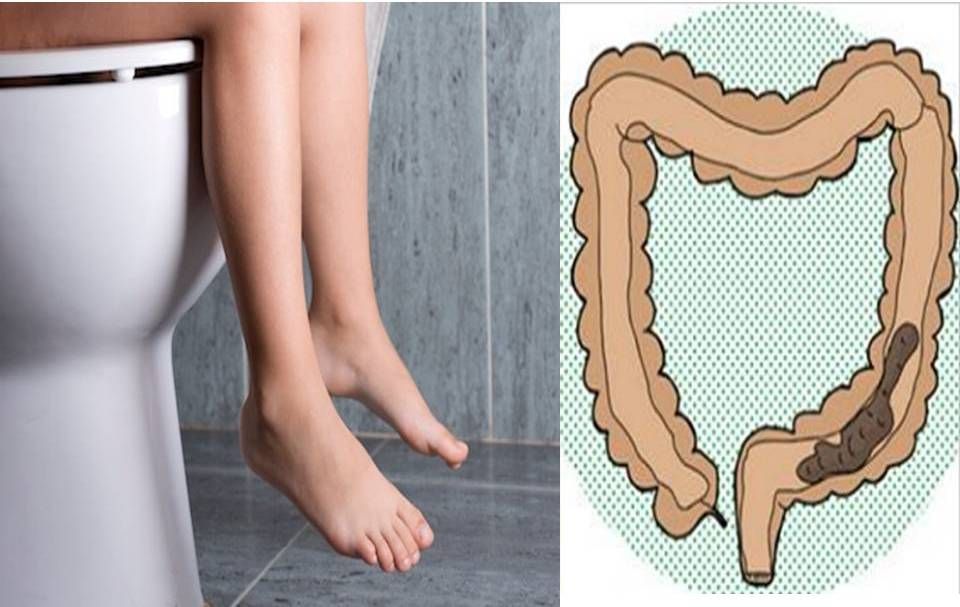
Babies who are older than 6 weeks will occasionally be constipated. Call your doctor if your baby has not had a poop for longer than a week or if they get constipated with hard stools more than once or twice.
Home treatments
Ask your doctor if you should try home remedies for your little one, like:
- liquids: If your baby is over 6 months old (age is important here!), you can give them a few ounces of water. For babies at least 1 month old, you can talk with your doctor about giving them a small amount apple or pear juice — 1 ounce for each month of age, up to 4 months. These juices have a natural sugar called sorbitol that is also a laxative. Drinking this might help soften your baby’s poop. Babies who are eating solid food can have prune juice.
- food: If your baby is eating solids, give them fiber-rich foods to help pass the poop. Try puréed prunes, sweet potatoes, or fruits. Fiber-rich foods might make your baby gassy, but they often help with the poop!
- exercise: Your baby might just need to get moving to help them poop! Moving your baby’s legs as in a bicycle motion may help rev their digestion engine.
 You can also try holding your baby up so they are “walking” in your lap.
You can also try holding your baby up so they are “walking” in your lap. - massage and a warm bath: Try massaging your baby’s stomach and body. This can help relax them and get their digestion moving. You can also try a warm bath to help them relax.
- medications: If none of the changes in feeding, diet, or exercise help with the constipation, your doctor might recommend trying an infant glycerin suppository. These have to be put into your baby’s rectum, but they may be relieved and sleep peacefully when they can have a good poop! But be sure to talk with your baby’s doctor first if you are considering this option.
If your baby is gassy but not pooping, don’t worry. These common symptoms are normal in babies as they learn how to feed and digest food. Your baby might be constipated.
Call your baby’s pediatrician immediately if your newborn baby (under 6 weeks old) is not pooping at all. Also call if your baby (of any age) has constipation for longer than 5 to 7 days or if they also have other symptoms.
Causes & How To Help Them
It is okay for babies to poop infrequently, but you may talk to your doctor about it.
Research-backed
MomJunction believes in providing reliable, research-backed information to you. As per our strong editorial policy requirements, we base our health articles on references (citations) taken from authority sites, international journals, and research studies. However, if you find any incongruencies, feel free to write to us.
Image: iStock
The bowel movements of an infant are an important measure of their overall health. The regularity with which a baby poops could indicate the quality of their nutrition and overall health. As a result, it’s understandable if you’re concerned in situations where your baby does not poop but passes gas.
Inconsistent bowel motions in infants could be caused by various factors, ranging from benign (harmless) disorders to underlying illnesses.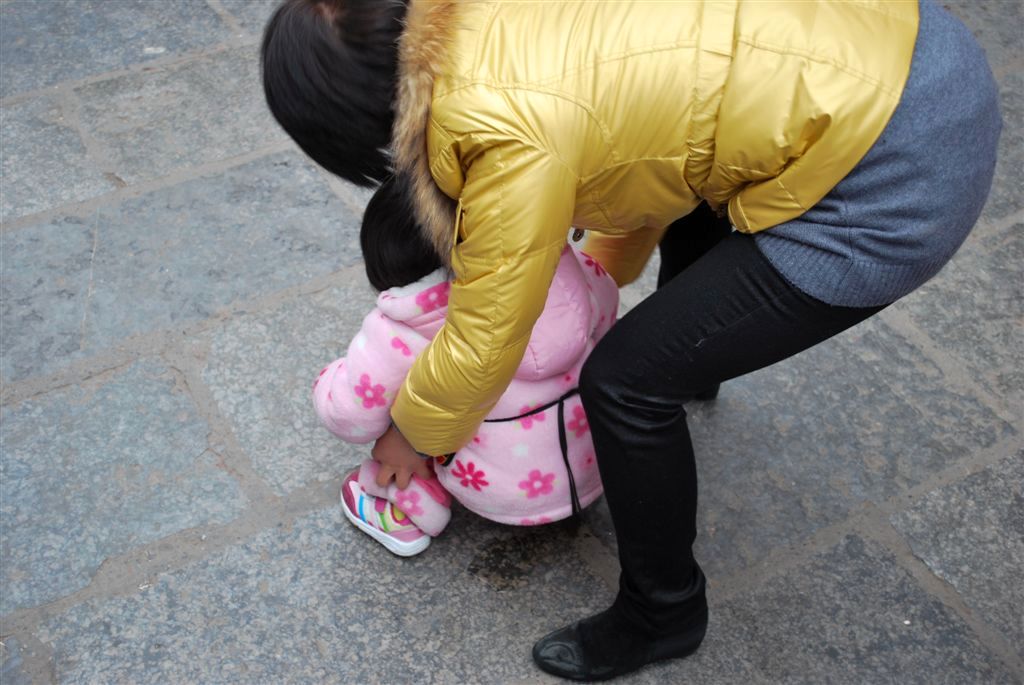 Read on to learn more about normal pooping patterns in babies, what causes infrequent pooping, and when to be concerned about it.
Read on to learn more about normal pooping patterns in babies, what causes infrequent pooping, and when to be concerned about it.
How Often Should A Baby Poop?
The frequency of pooping varies among babies. The following are the key attributes of normal bowel movements among most infants (1) (2).
- The baby will poop their first stool called meconium, which is olive green in color and odorless. About 99% of newborns pass the stool within 24 hours (3). Most babies eventually pass meconium within 48 hours.
- Once the meconium passes, the baby will begin pooping actual stool.
- Babies usually poop one to two times a day during their first week.
- The pooping frequency may increase to five to ten times a day from the second week and stay that way for the first month. Some babies may poop after each feeding session.
- After the first month, the frequency of pooping begins to drop.
- By the second month, the frequency of pooping may significantly reduce with some babies pooping once in two days.

The frequency of pooping usually becomes less predictable and greatly varied as the baby grows older and their digestive system matures. Breastfed babies tend to poop more often when compared to formula-fed babies.
Once your baby is older than six months and consumes solids, there could be significant variation in their pooping frequency, depending on the type of solid food they eat and the frequency of eating.
Is It Normal For A Breastfed Baby To Not Poop For Days?
Yes, it is okay for a breastfed or even formula-fed baby to not poop for a couple of days. According to the American Academy of Pediatrics, it is normal for some babies to be slow poopers and have one poop every few days (4).
Experts state that more than the frequency of pooping, parents must focus on the type of stool. If the baby’s stool is hard, contains blood, or is white in color, it could indicate an underlying problem.
What Can Cause Your Baby To Not Poop?
If your baby did not poop in a day, wait for a couple of days. Be watchful of the color and consistency of the stool. You may also check if the baby is getting enough feeds since inadequate feeding could cause the baby to not poop much.
Be watchful of the color and consistency of the stool. You may also check if the baby is getting enough feeds since inadequate feeding could cause the baby to not poop much.
A baby may continue to not poop for many days due to the following reasons.
1. Constipation
Constipation is common in babies and is usually indicated by the lack of pooping for several days (5) (6). Apart from not pooping, the baby may have constipation if they:
- Strain for ten minutes at a time to poop but with no excretion.
- Excrete dry, hard, and pellet-shaped stool, which is visibly devoid of fluid.
- Often act fussy, especially while straining.
- Act fussy and cry while rubbing their tummies.
In severe cases, the baby may have a bloated, distended abdomen, which is hard to touch.
There are various reasons for constipation in babies, ranging from a change in formula milk to gastrointestinal ailments. Newborns may develop meconium constipation due to underlying conditions, such as meconium plug syndrome or gastrointestinal anomalies (3). You may read more about constipation in babies and its causes here.
You may read more about constipation in babies and its causes here.
2. Changes in diet
The following notable changes in the baby’s diet could affect the frequency of pooping (7).
- Formula-fed babies may require changes in their formula as they grow older. A baby may poop less frequently during the transition.
- Babies who switch from breast milk to formula may develop constipation for a few days.
- Introduction of solid food may temporarily cause constipation.
- Decreased milk output from mother. If the baby is not passing stools and the frequency of urination of the baby is also less than four times a day, it may be because of decreased amount of feed.
3. Food allergies and intolerances
Some babies may not poop frequently due to food allergies and intolerances (8) (9). It is likely to be more common among older babies who consume a variety of solid food items. Newborns could be allergic to substances in the formula milk.
Babies with lactose intolerance may develop gastrointestinal problems, including constipation, even when fed breast milk. In such cases, the baby is also likely to display poor growth and lethargy due to inadequate nourishment.
When To See A Doctor?
Consult a doctor if the baby displays the following conditions (7).
- No meconium excretion for over three days
- Decreased oral acceptance or baby is refusing feeds
- Baby is less active/lethargic
- Lack of pooping for over three days
- Consistent excretion of hard, pellet-like or lumpy stool
- Stool contains streaks of blood or is white in color
- Abdomen appears stiff and hard to touch
- Increased size of abdomen
- Baby cries when the abdomen is touched
- Constipation is accompanied by vomiting or fever
If your baby is younger than three months, see a doctor for any concerns related to the frequency of pooping, even if the baby is otherwise healthy. Do not try any home remedy or treatment without first consulting a pediatrician.
Do not try any home remedy or treatment without first consulting a pediatrician.
Treatment For Infrequent Pooping In Babies
The treatment will depend on the underlying cause. The doctor may order tests, such as blood tests and X-rays, and ask about the baby’s medical history. Treatment would be recommended based on the diagnosis.
The treatment may include the following.
- Oral medications may help relieve constipation in some babies.
- Severe cases of constipation due to pathologies may require fecal disimpaction through suppositories or enemas. Subsequent treatment of the cause might be required.
- Changes in diet may help babies who consume solid food. The pediatrician may refer you to a pediatric dietician who would chart a diet for healthy bowel movements and adequate nutrition.
- Babies with allergies and intolerances could benefit from changes in formula and other dietary changes to avoid the allergen.
Most cases of constipation and erratic bowel movements in babies can be addressed with appropriate home care.
Home Remedies For Infrequent Pooping
Consult a doctor before trying any home remedies. You may try the following home remedies to alleviate constipation and improve the frequency of pooping in babies (10).
- Check if the baby is feeding adequately. If your baby is exclusively breastfed, increase the frequency of feeds. You can add two to three extra feeding sessions for a few days and check for the baby’s bowel movements.
- If the baby is formula-fed, speak to a doctor and increase the frequency of feeds if required. The doctor may even suggest switching to another formula.
- Babies older than one month can be given an ounce of fruit juice a day. Fruit juices contain sugars that are not digested adequately by the baby’s digestive system. The sugars draw water into the intestine and help ease constipation. The ounce of juice should be equal to the baby’s age in months. Thus, a two-month-old gets two ounces a day and so on. If juice does not improve constipation in three days, consult a doctor.
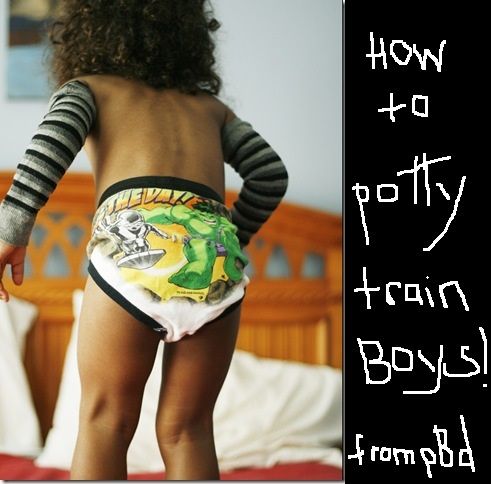
- Babies older than six months can be served homemade prunes puree for constipation. You may also serve prune juice. Prunes work the same way as other fruit juices in easing constipation.
- Babies who eat solids can be served extra water a day. Inadequate water intake may also lead to constipation. You can offer water every two to three hours to the baby. Do not force the baby to drink water if they do not wish to drink it.
- Babies who eat solids can be served pureed high-fiber fruits and vegetables. A few examples of high-fiber foods are beans, spinach, apricots, pears, plums, and peas. You can also switch to fiber-rich baby cereal. Serve them twice to thrice a day for optimum results.
- You may massage the baby’s belly when they are empty stomach. Use your fingers to gently massage around the baby’s belly button in circular motions. Apply very gentle pressure. You may massage for 30 seconds at a time once or twice a day, especially after a warm bath.
 Massage may help stimulate intestinal muscles and improve bowel movement.
Massage may help stimulate intestinal muscles and improve bowel movement.
- Let your baby get adequate exercise, including assisted exercise. Lay the baby on their back and gently move their legs in a bicycling or pedaling motion for 30 seconds to a minute. Your baby can also exercise by crawling and through tummy time. These exercises improve gastrointestinal muscle movement and may also aid in digestion.
Never give the baby over-the-counter laxatives, mineral oil, enema, suppositories, and alternative medicines for constipation without consulting a doctor.
1. Can a baby be constipated and still fart?
Constipation and flatulence (passing gasses) may be seen in babies who are not exclusively breastfed. In most cases, constipation may resolve within a short time without interventions. Although it is not unusual for exclusively breastfed babies to poop less and pass gasses, they won’t be constipated.
2. How long can babies go without pooping?
It may depend on the age and diet of the baby.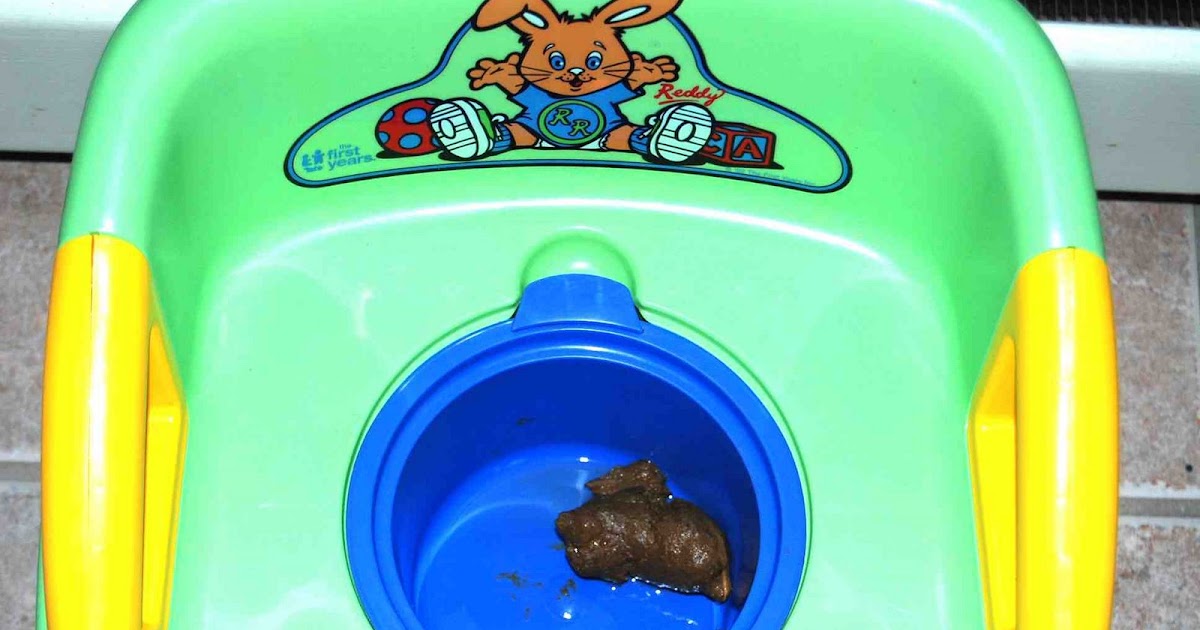 Babies older than eight weeks may not poop for four to five days. Exclusively breastfed babies can go two weeks without pooping at two to three months, which does not mean that they are constipated. There won’t be any discomfort or signs such as a full belly. Most babies who won’t poop are fine and often require little or no treatment (11). Babies meet their energy and nutritional needs from breastmilk, and there can be little waste product from breastmilk after digestion.
Babies older than eight weeks may not poop for four to five days. Exclusively breastfed babies can go two weeks without pooping at two to three months, which does not mean that they are constipated. There won’t be any discomfort or signs such as a full belly. Most babies who won’t poop are fine and often require little or no treatment (11). Babies meet their energy and nutritional needs from breastmilk, and there can be little waste product from breastmilk after digestion.
3. When to worry about a baby passing gas but not pooping?
There is no need to worry if an exclusively breastfed infant older than six weeks passes gas and does not poop for a few days. However, it is recommended to contact the pediatrician if the baby is not exclusively breastfed and not pooping for more than three days. In addition, you may inform the pediatrician if symptoms such as vomiting and irritability are present (12).
4. Does gas relief help babies poop?
Excess gas can cause changes in bowel movements. Some babies may have constipation due to gas formation, while others may have diarrhea. Constipation or difficulty pooping could be resolved once the gas is relieved. However, you may seek a pediatric consultation if it is a frequent issue.
Some babies may have constipation due to gas formation, while others may have diarrhea. Constipation or difficulty pooping could be resolved once the gas is relieved. However, you may seek a pediatric consultation if it is a frequent issue.
5. What’s the difference between baby gas and colic?
Colic is crying in babies lasting more than three hours for at least three days a week. Gas can occur anytime and resolves spontaneously by burping or other techniques. Gas can also cause colic in babies if not resolved. Babies can pass gas through burping or flatulence. Colic can also be due to other conditions, such as food allergies. Visit a pediatrician if your baby is fussy, has discomfort, is unsure about the cause, or if home care measures are not providing relief.
A baby’s poop frequency will change as their digestive system becomes mature. This infrequent pooping pattern can be normal if they are due to diet changes. However, food or lactose intolerance could lead to irregular pooping patterns, which must be checked and treated. Consult your pediatrician if your baby hasn’t pooped for more than three days, expresses any discomfort, or has bloody stools. Introduce fiber into your baby’s diet gradually if they are older than six months. You may also seek a pediatric dietitian’s advice on adding fiber to your baby’s diet.
Consult your pediatrician if your baby hasn’t pooped for more than three days, expresses any discomfort, or has bloody stools. Introduce fiber into your baby’s diet gradually if they are older than six months. You may also seek a pediatric dietitian’s advice on adding fiber to your baby’s diet.
Key Pointers
- If your baby is not pooping but constantly passing gas, the reasons could include constipation, food changes, and allergies.
- The frequency of passing stool varies in babies depending on the food type and eating frequencies.
- However, if your baby does not poop for more than three days, visit a doctor immediately.
References:
MomJunction's articles are written after analyzing the research works of expert authors and institutions. Our references consist of resources established by authorities in their respective fields. You can learn more about the authenticity of the information we present in our editorial policy.
1. Baby’s First Bowel Movements; American Academy of Pediatrics
Baby’s First Bowel Movements; American Academy of Pediatrics
2. Bowel Movements in Babies; C.S. Mott Children’s Hospital
3. Vera Loening-Baucke and Ken Kimura, Failure to Pass Meconium: Diagnosing Neonatal Intestinal Obstruction; American Family Physician
4. Pooping By the Numbers; American Academy of Pediatrics
5. Wendy S. Biggs and William H. Dery, Evaluation and Treatment of Constipation in Infants and Children; American Family Physician
6. Infant Constipation; American Academy of Pediatrics
7. Constipation in infants and children; U.S. National Library of Medicine
8. Ekaterini I Syrigou et al., Food allergy-related paediatric constipation; U.S. National Library of Medicine
9. Antonio Carroccio et al., Chronic constipation and food intolerance; U.S. National Library of Medicine
10. Constipation: Infant; Nationwide Children’s Hospital
11. How Long Can A Baby Go Without Pooping?; ChildrensMD; St. Louis Children’s Hospital
How Long Can A Baby Go Without Pooping?; ChildrensMD; St. Louis Children’s Hospital
12.Constipation In Infants And Children; MedlinePlus; National Library of Medicine
The following two tabs change content below.
- Reviewer
- Author
Rohit Garoo did MBA from Osmania University and holds a certificate in Developmental Psychology from The University of Queensland. The zoologist-botanist turned writer-editor has over 8 years of experience in content writing, content marketing, and copywriting. He has also done an MBA in marketing and human resources and worked in the domains of market research and e-commerce. Rohit writes topics... more
Dr. Chetan Singh is passionate doctor with experience in pediatric care and hospital settings, currently working as senior resident doctor in Safdarjung Hospital, Delhi. He is adapt in diagnosing and strategizing for the best treatment plan and care for patients. Dr.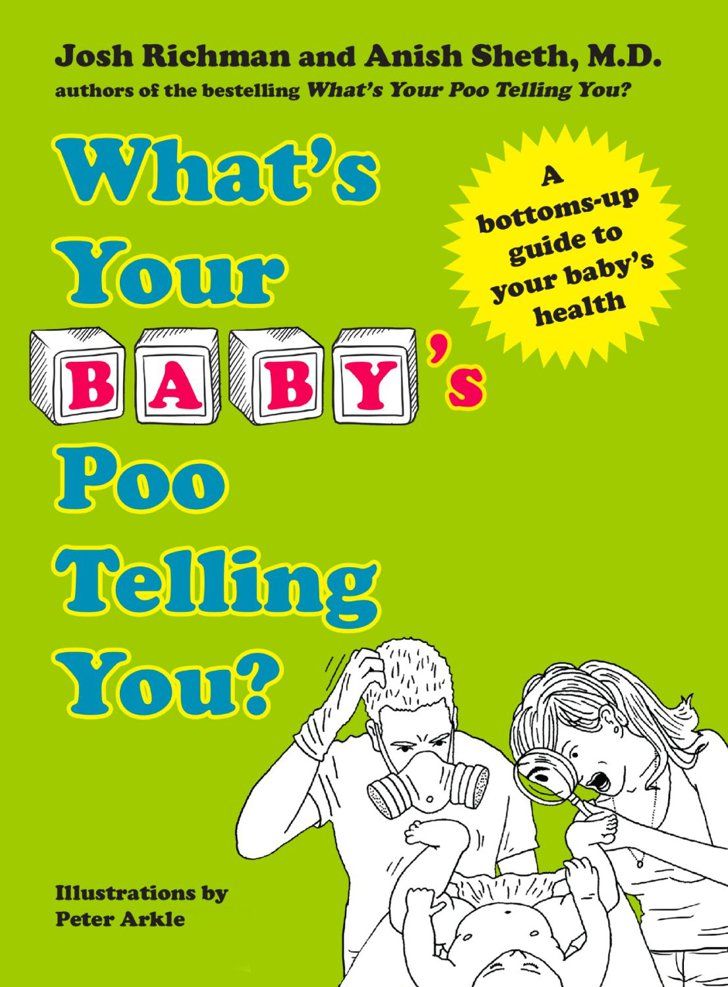 Singh did his in MD Pediatrics and Neonatology from Vardhman Mahavir Medical College and Safdarjung Hospital. The young doctor... more
Singh did his in MD Pediatrics and Neonatology from Vardhman Mahavir Medical College and Safdarjung Hospital. The young doctor... more
Baby Dry Scalp: Causes, Home Remedies..
Baby Dry Scalp: Causes, Home Remedies..
Baby Heat Rash: Types, Symptoms And..
Baby Heat Rash: Types, Symptoms And..
Strong Urine Smell In Babies: Causes,..
Strong Urine Smell In Babies: Causes,..
20 Reasons Why Baby Fusses Or Cries..
20 Reasons Why Baby Fusses Or Cries..
Why Do Babies Roll Their Eyes While..
Why Do Babies Roll Their Eyes While..
Fever During Pregnancy: Symptoms,..
Fever During Pregnancy: Symptoms,..
Beckwith-Wiedemann Syndrome In Babies:..
Beckwith-Wiedemann Syndrome In Babies:..
11 Reasons Why Baby Refuses To Eat And..
11 Reasons Why Baby Refuses To Eat And..
Stomach Pain During Pregnancy: Causes.
 .
.Stomach Pain During Pregnancy: Causes..
possible causes, symptoms, solving problems with medication and folk methods
The situation when a person emits gases is quite normal and even very necessary from the point of view of physiology. An adult farts up to fifteen times a day. Children are no exception. A newborn child can fart, but not poop, from birth, since his digestive system began to work in a new mode, the first fecal waste occurs. A baby can fart a lot until his body gets used to the new food.
Causes of gas
First you need to understand what causes gas in the intestines and what is the mechanism of their occurrence:
- A small amount of air can be swallowed by an infant when feeding from a bottle or while suckling the breast. Passing through the esophagus and further, the air will want to go out.
- Your baby's intestines contain many bacteria that help digest food. Various chemical reactions take place during their life, during which gases are released, such as methane, hydrogen, carbon dioxide, ammonia and others.

- When digestive juices interact with each other, carbon dioxide is released.
In this situation, parents should not be alarmed why the newborn farts but does not poop. The volume of "bunches" will depend on the composition and amount of accumulated gases.
Many parents get scared when their child farts at night. But this is also not a big deal, because the baby ate before bedtime, which made the digestive system work hard.
Other factors
But there are other situations when a newborn is pushing, farting, but not pooping, while acting restlessly, crying, the smell of emitted air is very sharp. In this case, it is worth finding out what was the reason, and then, depending on the situation, act.
The following factors lead to excessive excretion of gases:
- getting used to a new type of food;
- transition from breastfeeding to artificial feeding;
- complementary foods are difficult to digest or a new product is given in too large portions;
- a breastfeeding mother violates the dietary rules.

Some reasons why a newborn farts a lot, but does not poop, are worth considering in more detail.
Flatulence
The development of flatulence (increased accumulation of gases) can cause a baby to fart but not poop. If the mother eats certain foods that cause the fermentation process, this can lead to excess gas formation.
Such products include: cabbage (cauliflower or cabbage), black bread, legumes or flour products consumed in large quantities. Flatulence leads to pain, bloating and a desire to pass gases.
It is not recommended to change the formula too often for formula-fed babies. This kind of experiment overloads the intestines. When there is a transition to adapted mixtures from mother's milk, the stool itself changes its texture, color and smell.
The baby may suffer from lack of fluids, especially during the summer. This leads to constipation, due to which the newborn farts, but does not poop for days.
Many babies may suffer from intolerance to cow's milk. Therefore, the intake of any product containing milk can cause intestinal cramps, diarrhea and excessive gas formation. In the presence of lactose intolerance or insufficiency, it is necessary, together with a pediatric gastroenterologist and a dietitian, to choose a suitable diet.
Therefore, the intake of any product containing milk can cause intestinal cramps, diarrhea and excessive gas formation. In the presence of lactose intolerance or insufficiency, it is necessary, together with a pediatric gastroenterologist and a dietitian, to choose a suitable diet.
Colic
Well, where without them? It is intestinal colic that is meant when it comes to gas in an infant who is not even three months old. It is difficult to confuse their symptoms with something, although the causes of occurrence are not completely clear. A seemingly healthy child, when intestinal spasms appear in the stomach, after a certain amount of time after feeding, begins to writhe in pain, brings his legs to his tummy, behaves restlessly, and cries. At the same time, his tummy is tense, the baby cannot swell.
Cause of a strong odor
The most common cause of a farting with a very strong stinky smell is intestinal imbalance (disturbance of the intestinal microflora) and a deficiency of digestive enzymes. The result of which is untimely processing of food, leading to putrefactive processes. Sulfur compounds, such as mercaptan and hydrogen sulfide, are formed, which in most cases are the cause of an unpleasant odor (this is how rotten eggs smell).
The result of which is untimely processing of food, leading to putrefactive processes. Sulfur compounds, such as mercaptan and hydrogen sulfide, are formed, which in most cases are the cause of an unpleasant odor (this is how rotten eggs smell).
Pay special attention to your baby's digestion during the weaning period, as many foods that are new to a baby can affect stool and odor.
An unpleasant odor is possible after eating foods such as eggs, cauliflower, meat. Interestingly, although legumes are the cause of the development of increased gas formation, they do not have a strong odor during processing.
In such cases, the nursing mother needs to reconsider her diet and the child who has begun to receive complementary foods.
Constipation
The situation when a newborn farts but does not poop is often associated with constipation. The baby begins to push, blush, his general condition suggests that he is in pain, his tummy is tense, he cannot go to the toilet, or his stool is of a hard consistency.
Causes of constipation in an infant
Problems with stool can be caused by several reasons.
Breastfed babies may not go to the toilet for more than four days. The reason for this is that mother's milk is completely absorbed by the baby's body, so he has nothing to poop.
Due to a violation of the diet of a nursing mother, problems with the stool of a newborn also occur. In this case, she will just need to adjust it and give up foods such as rice, bananas, white flour bread, black tea and coffee.
Premature transfer of a baby from breastfeeding to artificial can complicate the situation with the stool. When an infant is bottle-fed, he may not have enough liquid (water) consumed in addition to formula.
Up to six months, breast milk is enough for an infant, which is the only nutritional option, and premature introduction of complementary foods will affect his digestion.
It is impossible to exclude reasons that are of a psychological nature.
If a newborn farts a lot, this indicates an excessive accumulation of gases in the intestines, which need to be helped out.
Lactulose containing preparations can correct the problem. They have a mild laxative effect and do not harm the health of the baby at all. Still use a gas outlet tube. Pharmacy teas with fennel, dill water also help to remove gases from the baby's body. Together with the pediatrician, it is necessary to decide whether it is necessary to adjust the child's nutrition or replace the mixture.
Dysbacteriosis
It often happens that a newborn farts a lot, strains and poops a little bit almost every time. The problem in this case is no longer in the frequent emission of gases, but in the fact that an imbalance has occurred in the intestines, which could be caused by malnutrition, taking certain medications, and more.
If the baby often poops, he has to be constantly washed, and this adversely affects his delicate skin.
Pediatrics use a variety of medications to treat colic and digestive problems. Most often, these are drugs with lacto- and bifidobacteria, which allow you to normalize the intestinal microflora. If after this the stool does not return to normal, a fecal analysis is prescribed.
Most often, these are drugs with lacto- and bifidobacteria, which allow you to normalize the intestinal microflora. If after this the stool does not return to normal, a fecal analysis is prescribed.
Fighting gas
Let's summarize what to do if the child suffers from excessive gas formation:
- The baby needs to be given plenty of fluids to drink. Dill water, chamomile tea, Plantex, raisin water will also help the baby (the raisins are thoroughly washed, poured with hot water - 1 tsp per 1 tablespoon of water - insist for 20 minutes, filter).
- Give the baby a clockwise tummy massage with a warm diaper. This will help get rid of colic and pain.
- Gymnastics is also effective. Its essence is as follows: the baby must be put on the back, and the legs should be brought to the tummy, so you should hold it for a couple of seconds, and then let go. 5 - 7 times you need to repeat the exercise. It is necessary to ensure that such movements do not cause pain to the child.

- A mother should monitor her diet and correctly introduce complementary foods.
If a newborn farts, but does not poop, and behaves absolutely calmly, does not cry or writhe in pain, then you can be sure that everything is in order with him. This means that the digestive system begins to work.
Constipation in children under one year old
Usually, parents of babies are worried about the exact opposite problem - too frequent stools. Therefore, not everyone immediately understands what to do if a baby under one year old has constipation.
Gastroenterologist, hepatologist at GMS Clinic Sergey Vyalov gave an interview to the Internet portal parents.ru and spoke about constipation in children under one year old.
Introduction
Constipation, also known as diarrhea, stool retention, discolia, caprostasis, difficulty in emptying the bowel is not a universal condition with unambiguous characteristics. Each person, including a child, has his own indicators of the norm and deviations from it, associated with age, intestinal microflora, diet, state of mind and hormonal background, concomitant diseases. Yet there are a few common points of reference.
Yet there are a few common points of reference.
What is constipation?
Specialists diagnose constipation if the baby does "big" things:
- regularly and without problems, but passing dry and hard stools;
- with difficulty - the child has to push, the feces do not come out on the first try;
- less than 5 times per day.
In the first six months of life, constipation is a rather rare occurrence, rather, on the contrary, in the period from 0 to 6 months, 6-10 bowel movements per day are considered the norm. Breastfed babies have more frequent bowel movements, while artificial babies have less.
Up to 6 months constipation is rare
Usually, parents of babies in the first months of life are alarmed by the condition opposite to constipation - too frequent bowel movements. But in a baby, regardless of whether he eats breast milk or formula, the intestines should work exactly like this - in a mode that is considered diarrhea for older children and adults.
There should be no other option, at least until the introduction of complementary foods at 4-6 months. After all, the baby receives mostly liquid food, the waste products of which have the same consistency and leave the intestines without encountering any obstacles on the way - the baby has not yet learned to control the sphincter that restrains the release of feces.
The baby's intestines have just begun to "get acquainted" with microorganisms that come from mother's milk, from her skin (the baby licks the nipple), from the environment. Far from all new "partners" are accepted: there are rejected ones, those who have not taken root, and so on. Checking and rejection are accompanied by loose, unstable stools.
Too frequent bowel cleansing does not need correction and treatment if the child is gaining weight and developing properly. Normal appetite and sleep, gas, absence of fever and other signs of illness indicate that parents have nothing to worry about. If the mother of a baby, tired of changing diapers 10 times in one day, wants to change the situation and asks the doctor to prescribe fixing medicines for the baby, then, unwittingly, she will doom her baby to chronic constipation.
If the mother of a baby, tired of changing diapers 10 times in one day, wants to change the situation and asks the doctor to prescribe fixing medicines for the baby, then, unwittingly, she will doom her baby to chronic constipation.
Not according to the rules
And yet, in the first 6 months, constipation in infants is not excluded. It can be called:
- microflora transmitted from mother;
- insufficient fluid volume;
- stress.
Let's say a woman has too many methane-producing bacteria in her stomach and intestines that cause constipation. They grow rather slowly, ferment, releasing carbon dioxide, which contributes to flatulence and bloating. With this deviation, the woman lives, adapted and learned to solve the problem with the intestines in one way or another. Noticing the same thing in a child, she decides that the baby has inherited her features and "saves" him with the same means, making a mistake. Babies should not be given laxatives, especially those containing senna.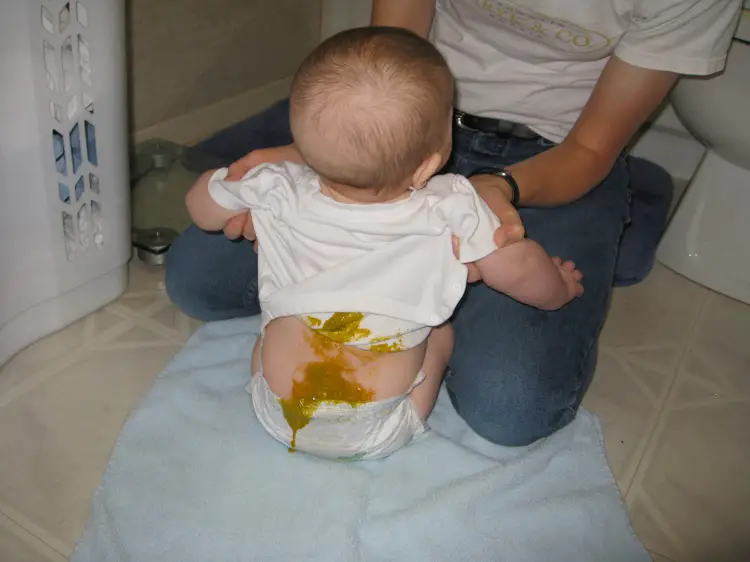 The baby's body gets used to such drugs too quickly and without them it can no longer cleanse the intestines.
The baby's body gets used to such drugs too quickly and without them it can no longer cleanse the intestines.
Constipation in a baby up to 6 months is also provoked by a lack of fluid and hormonal fluctuations. At 6 months, the baby should receive a lot of moisture - about 140 ml per kilogram of weight per day. A breastfed child gains this rate from mother's milk and does not need additional sources of liquid (but only if there is no predisposition to constipation). Little artificers are soldered from the moment they switch to a mixture.
If a woman is tense or nervous, then her level of the stress hormone cortisol rises. Through breast milk, saliva or sweat, the substance enters the baby's body and also provokes constipation.
Even if the mother does not breastfeed the baby, the constipating microorganisms sooner or later get to the gastrointestinal system of the crumbs and make negative changes in it.
Constipation after introduction of complementary foods
The kid is growing, improving his skills, and it's time to introduce him to new foods. These circumstances, on the one hand, help to establish peristalsis, and on the other hand, increase the risk of constipation.
These circumstances, on the one hand, help to establish peristalsis, and on the other hand, increase the risk of constipation.
By six months, the baby is already trying to control defecation, because he realized that after it there are unpleasant sensations - itching, burning and other discomfort in the areas where the feces get. In order not to experience discomfort, the child tries to restrain the urge. At first, he does not succeed, because the rectum has already learned how to work - reflexively contract and push out waste. And after a couple of months, everything works out, the baby wins and enters the path leading to chronic constipation. To get the baby out of this vicious circle, the mother must minimize the duration of the baby's skin contact with feces and expand the baby's diet by mastering complementary foods.
Proteins, fats and carbohydrates that are part of the products are absorbed in the small intestine, and do not reach the large intestine, where feces are formed. What can not be said about fiber. While the baby is drinking breast milk or formula, this component of the dishes is not familiar to him. Even if a nursing woman herself consumes a lot of plant foods, the baby does not get anything. Fiber, as already noted, is not absorbed in the intestines, does not enter the bloodstream, which means that it is not in breast milk. For the first time, a baby gets fiber with complementary foods by trying its first 25 grams of mashed potatoes from zucchini, carrots and other vegetables. Plant fibers literally attract all waste to themselves, as a result, fecal masses are formed, which help the intestines to master the correct peristalsis. There are a lot of muscles in this section of the gastrointestinal tract, in the intestines, they must learn to consistently contract - tighten and relax in order to squeeze waste out.
What can not be said about fiber. While the baby is drinking breast milk or formula, this component of the dishes is not familiar to him. Even if a nursing woman herself consumes a lot of plant foods, the baby does not get anything. Fiber, as already noted, is not absorbed in the intestines, does not enter the bloodstream, which means that it is not in breast milk. For the first time, a baby gets fiber with complementary foods by trying its first 25 grams of mashed potatoes from zucchini, carrots and other vegetables. Plant fibers literally attract all waste to themselves, as a result, fecal masses are formed, which help the intestines to master the correct peristalsis. There are a lot of muscles in this section of the gastrointestinal tract, in the intestines, they must learn to consistently contract - tighten and relax in order to squeeze waste out.
The next new product should be introduced one month after the previous one. The novelty is likely to cause more frequent and loose stools at first. If it does not have a green color and does not foam, there is no need to run to the doctor and ask to prescribe fixatives. Be patient, after a while the innovation will be mastered and will bear fruit. Instead of liquid and shapeless yellow-white feces, you will see brown feces that have formed.
If it does not have a green color and does not foam, there is no need to run to the doctor and ask to prescribe fixatives. Be patient, after a while the innovation will be mastered and will bear fruit. Instead of liquid and shapeless yellow-white feces, you will see brown feces that have formed.
Special constipation
There are other causes of constipation in babies. Unfortunately, they are much more difficult to deal with, since these are developmental pathologies, diseases, and injuries.
Acute constipation. It develops for anatomical reasons, for example, due to obstruction of the large intestine, or during intussusception - the introduction of one part of the intestine into another, which causes blockage of the lumen. Against the background of complete well-being, the baby suddenly becomes restless, cries, refuses to eat. The attack ends as unexpectedly as it began, but after 3-5 minutes it repeats and intensifies: one or two times vomiting appears with an admixture of green bile. If the stool passes, then blood impurities are visible in it. After 5–6 hours, the stool stops, and bloody discharge comes out of the rectum. At the same time, the baby's stomach is soft. The temperature is usually normal. The child may even lose consciousness. With such symptoms, you need to call an ambulance.
If the stool passes, then blood impurities are visible in it. After 5–6 hours, the stool stops, and bloody discharge comes out of the rectum. At the same time, the baby's stomach is soft. The temperature is usually normal. The child may even lose consciousness. With such symptoms, you need to call an ambulance.
Hirschsprung disease. It is based on a violation of the innervation of the large intestine - the central nervous system cannot control this section of the gastrointestinal tract. As a result, processed food accumulates in the intestines. The picture of the disease is quite diverse. If only the short part of the intestine is affected, then constipation forms gradually, and it is possible to do without surgical intervention for quite a long time. When a longer segment is affected, the absence of stool is fraught with a serious condition and immediate surgical intervention is required.
infectious attack. If in the first months of life the baby suffered an intestinal infection, the nerve cells in the large intestine may die, which will lead to a delay in the act of defecation, accumulation of feces and the development of constipation.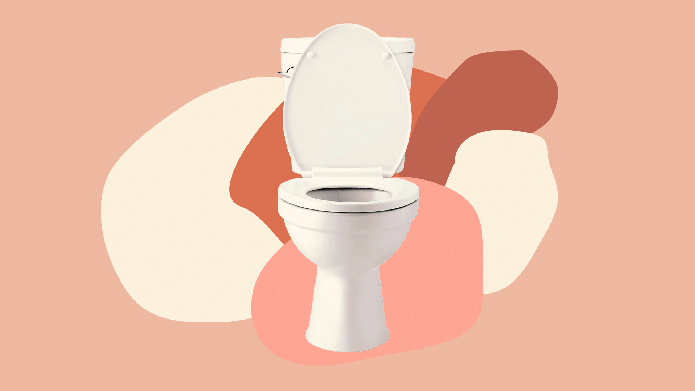 With dysentery, the so-called toxic megacolon is possible (a sharp expansion of the colon). The child develops impaired consciousness and repeated vomiting. The abdomen increases sharply due to a greatly enlarged intestine. The complication requires emergency surgical care.
With dysentery, the so-called toxic megacolon is possible (a sharp expansion of the colon). The child develops impaired consciousness and repeated vomiting. The abdomen increases sharply due to a greatly enlarged intestine. The complication requires emergency surgical care.
Problems with the CNS. Injuries during childbirth and the syndrome of infantile cerebral palsy also affect the functioning of the gastrointestinal tract, as they are associated with various complications, such as impaired swallowing, regurgitation, and vomiting.
Vasculitis. Vascular inflammation extends to the nerve plexuses and sensitive cells located in the intestinal wall.
Disorders in the work of the endocrine system. With hypothyroidism (lack of thyroid function), the movement of contents through the intestines slows down. With dysfunction of the parathyroid glands, constipation occurs due to a violation of mineral metabolism, with diabetes mellitus it becomes the result of damage to the nerve plexuses of the intestine or dehydration of the child's body.